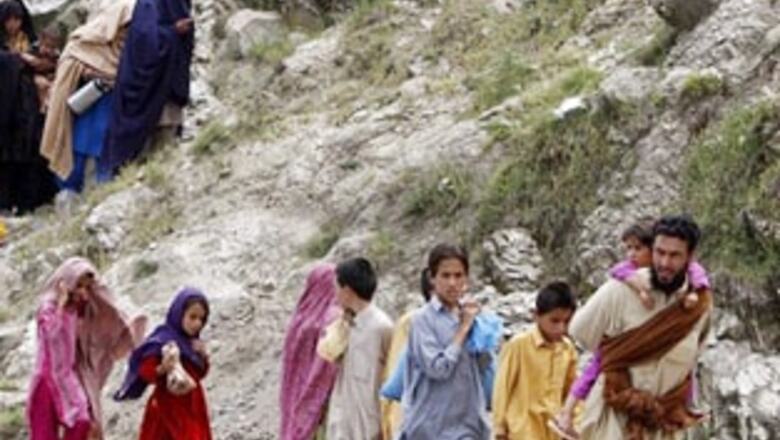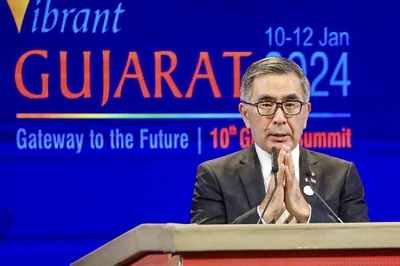
views
Islamabad: Pakistani jets and attack helicopters bombed Taliban positions in a district near the capital Tuesday, the military said, in an expansion of an offensive against militants seemingly emboldened by a much-criticized peace deal.
Troops and heavy artillery also joined the operation in Buner, which follows urgent calls from the United States for Islamabad to step up its fight against the militants, who moved into the region this month from the nearby Swat Valley. They set up checkpoints, patrolled streets and warned locals to abide by strict interpretations of Islam.
The offensive will cause major strains on an already shaky peace deal in the Malakand region, to which Buner belongs. The truce has been widely viewed in the West as a surrender to militants seen as slowly expanding their grip over the nuclear-armed nation.
Maj. Nasir Khan said jets bombed positions in mountains in the Babaji Kandao area of Buner. Casualty figures were not immediately known. Another military spokesman, Maj. Gen. Athar Abbas, said troops were also moving into the region. He estimated between 450 and 500 insurgents were in the area.
Witness Mohammad Shahid Khan said he saw tanks, heavy artillery and hundreds of troops heading over the Ambala pass leading to Buner.
Buner lies about 60 miles (100 kilometers) from Islamabad. Though they denied they were responding to outside pressure, Pakistani officials in recent days issued stern warnings against the Buner infiltrators, while launching a separate offensive against militants in Lower Dir, another district covered by the peace deal.
Abbas said the Dir operation was now complete and had killed between 70 and 75 militants. TV footage has shown hundreds of refugees fleeing the area, but officials have not released figures on any exodus.
Pakistan has launched at least a dozen operations against militants in the Afghan border region over the last five years. Officials have frequently claimed success, but the mostly lawless, mountainous area remains a haven for extremists who use it to stage attacks on foreign troops in neighboring Afghanistan, according to foreign governments.
Hundreds of thousands of people have fled the area and scores of civilians have been killed in the operations. The country has more than 100,000 troops on the border, but analysts say they have little experience in guerrilla operations, having been trained to fight a conventional war against long-standing enemy India on the country's eastern flank.
There are also major questions about the country's will to fight the insurgency, with politicians split on the seriousness of the threat they pose despite scores of bloody suicide attacks across the country in recent years. Frequently, Muslim leaders and politicians blame the militancy on the country's alliance with Washington and direct their anger at U.S. drone strike at militant targets in the northwest.
The Malakand deal imposes Islamic law in the region in exchange for peace with militants who have waged a violent two-year campaign in the Swat Valley. It apparently emboldened the Swat militants to go beyond the valley's borders, at least under the guise of enforcing Islamic law.
Many of the Taliban were reported to have left Buner starting on Friday. But Interior Minister Rehman Malik said earlier Tuesday that those remaining must leave or the government would take action.




















Comments
0 comment